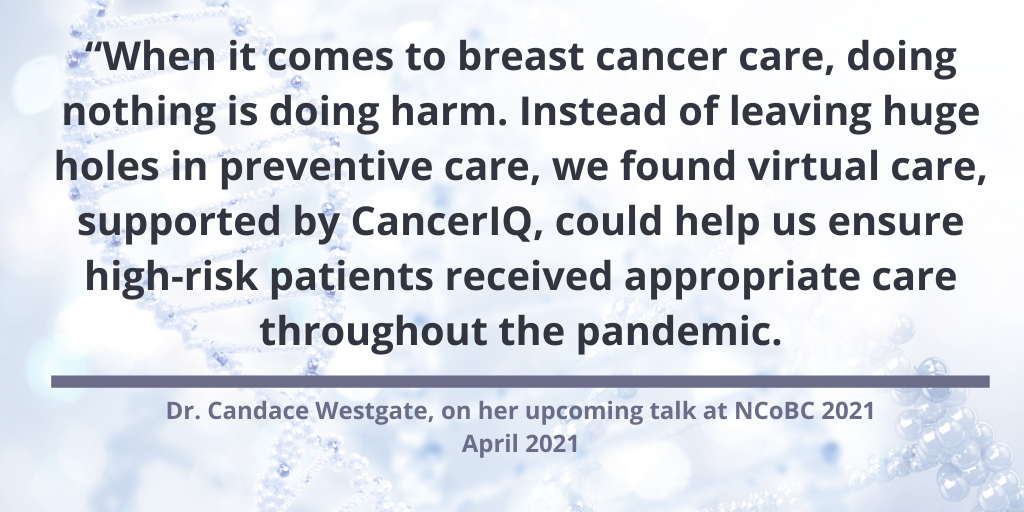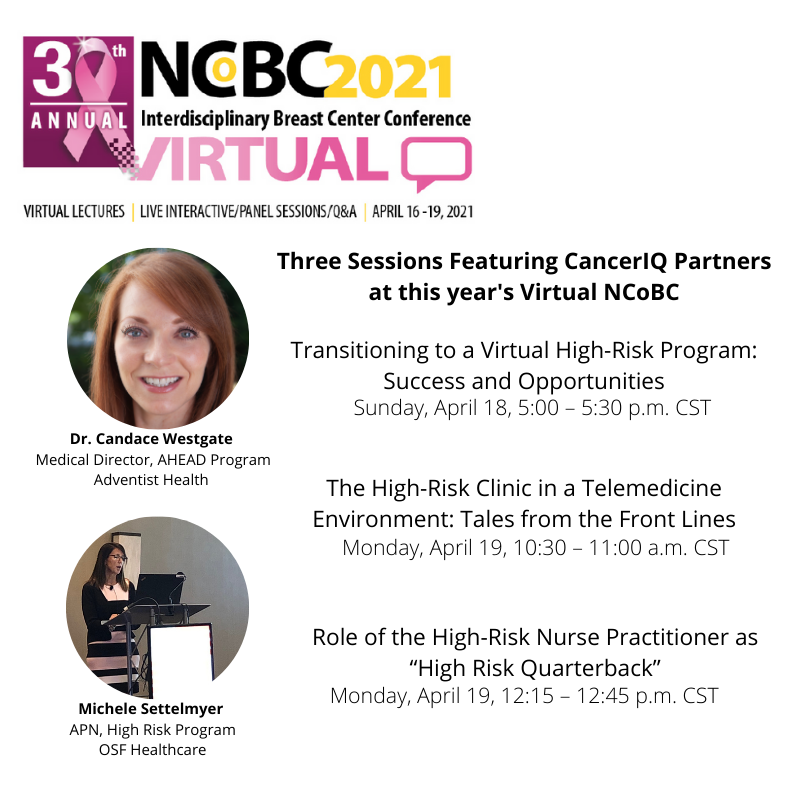As the nation braces for a rise in advanced stage cancer diagnoses due to the COVID-19 pandemic, two leading health systems will share how they are using CancerIQ’s precision prevention platform and telehealth to equitably prioritize high-risk patients for screening and identify cancer in its earliest stages. Clinicians from Adventist Health and OSF HealthCare will present in three sessions at the NCoBC 30th Annual Interdisciplinary Breast Center Conference — a global, interdisciplinary conference organized by the National Consortium of Breast Centers being held online April 16-19.
These sessions will explore how breast centers responded to the pandemic, expediting the adoption of virtual care to better serve high-risk patients who may have been missed otherwise due to COVID-19 restrictions or other barriers. Clinicians will share new data, real-life patient stories, and lessons learned to help illuminate strategies for a more equitable, value-based future.

“Even during lock down, we were able to identify and justify screenings for high-risk patients, which enabled us to diagnose multiple women with breast cancer while their disease was still curable.” said Candace T. Westgate, DO, medical director, AHEAD Program, Adventist Health St. Helena.
Access to risk assessments and genetic testing and counseling expands when these services are offered virtually. It gives people the flexibility to complete assessments and testing at home, which reduces barriers like transportation and time availability. It also improves quality because people have more time to put thought into their responses and call family members to confirm information, leading to a more accurate picture of their risk. It also helps health systems facing a shortage of genetic counselors by enabling nurse practitioners to champion the process.
“Transitioning to virtual care helped us conduct risk assessments and provide genetic testing and counseling to more patients, especially those living in rural areas, far from our clinic,” said Michele Settelmyer, APN, OSF HealthCare Saint Francis Medical Center in Peoria, Ill. “Once we identify at-risk patients, the CancerIQ platform also helps us navigate and manage long-term care, which is essential to cancer prevention, early detection, and improved outcomes.”
Don’t miss these opportunities to learn more about virtual high-risk breast clinics.

The sessions are available to registered attendees only. Register here. We hope to see you there!

